Public Utilities & Energy Infrastructure
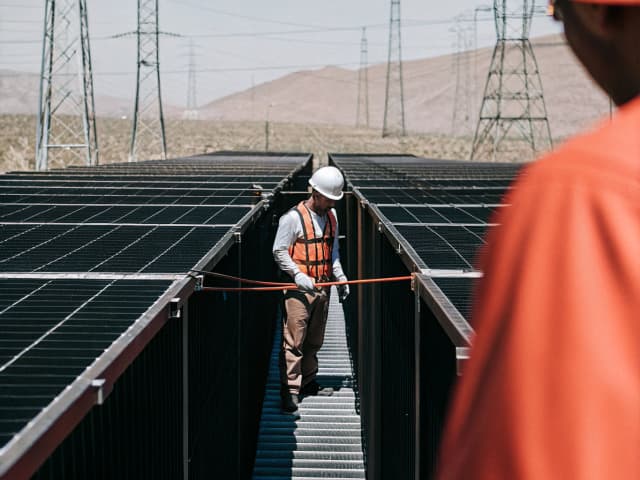
Energy: firm zero-carbon resources.
Requires the Public Utilities Commission to assess zero-carbon energy needs and opportunities by December 2026. Mandates identification of priority regions for deploying firm zero-carbon resources to ensure grid reliability. Establishes requirements to analyze market barriers and solutions for zero-carbon energy deployment. Creates a framework to evaluate clean energy resources for local and system-wide reliability.
Energy: firm zero-carbon resources.

Requires the Public Utilities Commission to assess zero-carbon energy needs and opportunities by December 2026. Mandates identification of priority regions for deploying firm zero-carbon resources to ensure grid reliability. Establishes requirements to analyze market barriers and solutions for zero-carbon energy deployment. Creates a framework to evaluate clean energy resources for local and system-wide reliability.
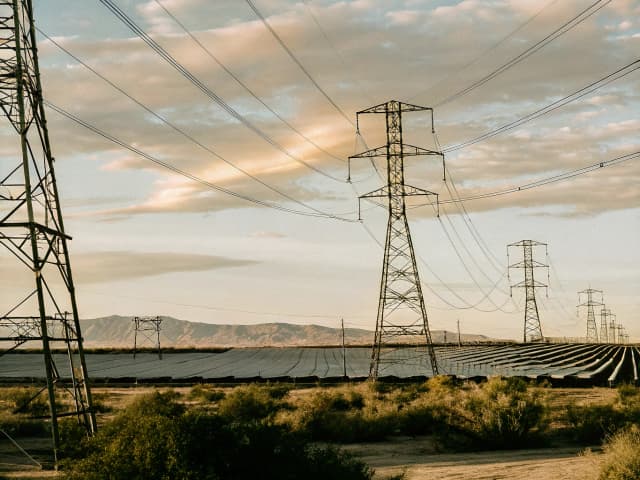
Electricity: transmission planning and permitting.
Requires more frequent reviews of state electricity transmission planning from every 5 years to every 3 years. Mandates coordination between utility regulators and grid operators to update transmission planning guidelines. Aims to improve California's renewable energy infrastructure development and reliability.
Electricity: transmission planning and permitting.

Requires more frequent reviews of state electricity transmission planning from every 5 years to every 3 years. Mandates coordination between utility regulators and grid operators to update transmission planning guidelines. Aims to improve California's renewable energy infrastructure development and reliability.
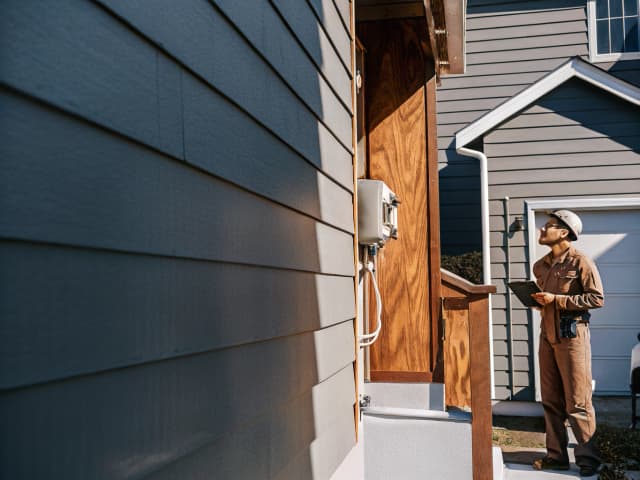
Electricity: ratepayer-funded programs: reports.
Requires state agencies to evaluate electricity programs that may be unnecessarily increasing consumer rates. Mandates detailed reports to the Legislature by July 1, 2025 on program costs and benefits. Authorizes agencies to recommend eliminating ineffective programs and returning unused funds to ratepayers. Takes effect immediately to address California's electricity rates that are double the national average.
Electricity: ratepayer-funded programs: reports.

Requires state agencies to evaluate electricity programs that may be unnecessarily increasing consumer rates. Mandates detailed reports to the Legislature by July 1, 2025 on program costs and benefits. Authorizes agencies to recommend eliminating ineffective programs and returning unused funds to ratepayers. Takes effect immediately to address California's electricity rates that are double the national average.

Hydrogen pipeline safety.
Establishes new safety standards for hydrogen pipelines to protect residents and the environment. Requires pipeline owners to use continuous monitoring systems to detect and prevent hydrogen leaks. Mandates annual compliance reports from pipeline owners to the State Fire Marshal by March 30. Requires all pipeline materials to meet strict engineering standards for hydrogen compatibility.
Hydrogen pipeline safety.

Establishes new safety standards for hydrogen pipelines to protect residents and the environment. Requires pipeline owners to use continuous monitoring systems to detect and prevent hydrogen leaks. Mandates annual compliance reports from pipeline owners to the State Fire Marshal by March 30. Requires all pipeline materials to meet strict engineering standards for hydrogen compatibility.

Energy: equitable clean energy supply chains and industrial policy in California.
Establishes an interagency framework for equitable clean energy supply chains. Designates a Senior Counselor by March 1, 2027. Requires MOUs among six agencies to guide planning, procurement, and jobs. Creates the Equitable Clean Energy Fund in the treasury, spendable by appropriation.
Energy: equitable clean energy supply chains and industrial policy in California.

Establishes an interagency framework for equitable clean energy supply chains. Designates a Senior Counselor by March 1, 2027. Requires MOUs among six agencies to guide planning, procurement, and jobs. Creates the Equitable Clean Energy Fund in the treasury, spendable by appropriation.
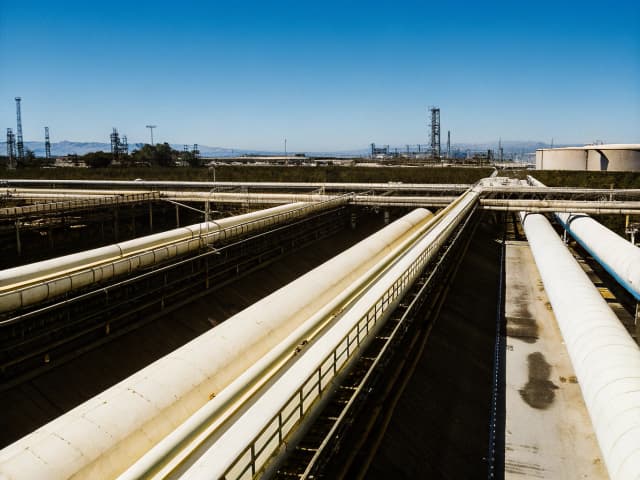
Energy: transportation fuels: supply: reportable pipelines.
Requires identification of reportable pipelines delivering crude oil by December 31, 2026. Mandates monthly reporting of 24-hour volumes, daily deliveries, hours, and capacity. Commences March 30, 2027 as the start of reporting by reportable pipelines. Extends penalties for noncompliance, allows court orders, and preserves confidentiality.
Energy: transportation fuels: supply: reportable pipelines.

Requires identification of reportable pipelines delivering crude oil by December 31, 2026. Mandates monthly reporting of 24-hour volumes, daily deliveries, hours, and capacity. Commences March 30, 2027 as the start of reporting by reportable pipelines. Extends penalties for noncompliance, allows court orders, and preserves confidentiality.

Lifeline program: broadband internet access service.
Establishes a voluntary program for internet providers to offer subsidized broadband service to low-income households. Requires participating providers to offer internet plans with 100Mbps download speeds for $30 or less monthly. Prohibits requiring customers to bundle internet with phone service to receive the subsidy. Mandates program evaluation by 2028 and automatically expires in 2032.
Lifeline program: broadband internet access service.

Establishes a voluntary program for internet providers to offer subsidized broadband service to low-income households. Requires participating providers to offer internet plans with 100Mbps download speeds for $30 or less monthly. Prohibits requiring customers to bundle internet with phone service to receive the subsidy. Mandates program evaluation by 2028 and automatically expires in 2032.
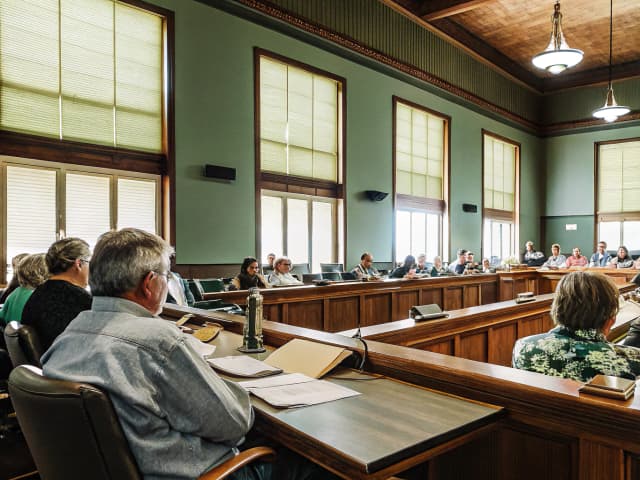
Public Utilities Commission: quorum for the transaction of business.
Makes technical changes to provisions governing the Public Utilities Commission's quorum requirements.
Public Utilities Commission: quorum for the transaction of business.

Makes technical changes to provisions governing the Public Utilities Commission's quorum requirements.
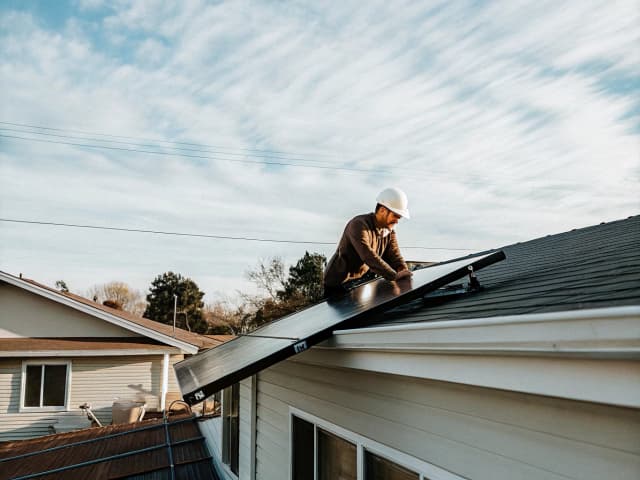
California Solar Initiative: distributed energy resource equipment lists.
Authorizes the Energy Commission to establish rating standards for solar, energy storage, and EV charging equipment. Sets a state goal to install 3,000 megawatts of solar energy capacity across California. Requires solar systems to be installed on 50 percent of new homes within 13 years. Mandates 30-day public notice before adopting new equipment guidelines.
California Solar Initiative: distributed energy resource equipment lists.

Authorizes the Energy Commission to establish rating standards for solar, energy storage, and EV charging equipment. Sets a state goal to install 3,000 megawatts of solar energy capacity across California. Requires solar systems to be installed on 50 percent of new homes within 13 years. Mandates 30-day public notice before adopting new equipment guidelines.
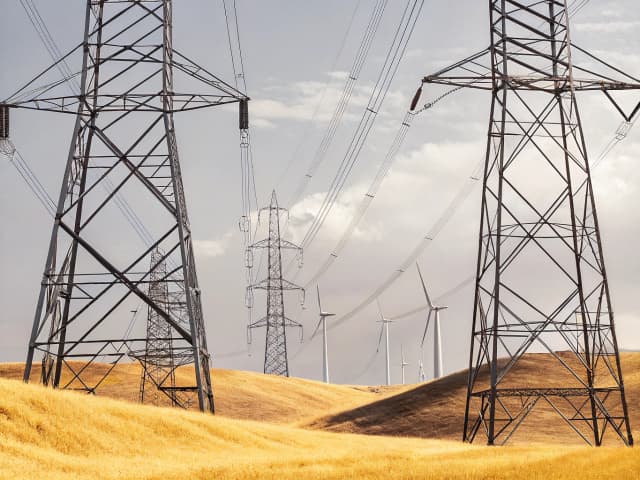
Energy reliability.
Makes technical changes to provisions governing the Independent System Operator's grid management duties.
Energy reliability.

Makes technical changes to provisions governing the Independent System Operator's grid management duties.

Pupil literacy: credential program standards and professional development: instructional materials.
Establishes literacy-focused credential standards and ELA/ELD material criteria. Adopts K–8 ELA/ELD materials by January 31, 2027 and updates guidance. Requires reading credentials prep by January 1, 2028, with EL and multilingual emphasis. Requires admin services literacy prep by Sept 1, 2028; LEAs certify non-SBE alignment.
Pupil literacy: credential program standards and professional development: instructional materials.

Establishes literacy-focused credential standards and ELA/ELD material criteria. Adopts K–8 ELA/ELD materials by January 31, 2027 and updates guidance. Requires reading credentials prep by January 1, 2028, with EL and multilingual emphasis. Requires admin services literacy prep by Sept 1, 2028; LEAs certify non-SBE alignment.

Public Utilities Commission: outreach.
Requires the Public Utilities Commission to seek input from affected parties before determining proceeding scope. Mandates documentation of stakeholder outreach efforts in initial scoping memos. Removes outdated requirements for utility regulatory outreach studies that expired in 2020.
Public Utilities Commission: outreach.

Requires the Public Utilities Commission to seek input from affected parties before determining proceeding scope. Mandates documentation of stakeholder outreach efforts in initial scoping memos. Removes outdated requirements for utility regulatory outreach studies that expired in 2020.
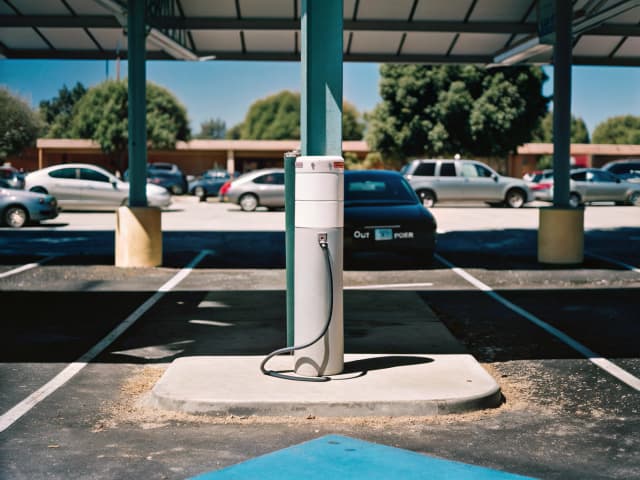
Transportation electrification: electric vehicle charging stations: payment methods.
Authorizes the commission to modify payment methods as technology evolves. Prohibits subscription or membership requirements and requires price disclosure at sale. Requires new stations to offer contactless payments and a phone or SMS session option. Mandates Plug and Charge ISO 15118 for DC fast charging by 2024.
Transportation electrification: electric vehicle charging stations: payment methods.

Authorizes the commission to modify payment methods as technology evolves. Prohibits subscription or membership requirements and requires price disclosure at sale. Requires new stations to offer contactless payments and a phone or SMS session option. Mandates Plug and Charge ISO 15118 for DC fast charging by 2024.

Utilities: service outages and updates: alerts.
Requires automatic enrollment of utility customers in outage alerts by March 1, 2026, with opt-out. Requires LPOEUs to develop procedures by 2026 to maximize enrollment. Requires annual bill notices to explain updating contact methods and allow online or phone updates. Imposes criminal penalties for noncompliance; no state reimbursement for local costs.
Utilities: service outages and updates: alerts.

Requires automatic enrollment of utility customers in outage alerts by March 1, 2026, with opt-out. Requires LPOEUs to develop procedures by 2026 to maximize enrollment. Requires annual bill notices to explain updating contact methods and allow online or phone updates. Imposes criminal penalties for noncompliance; no state reimbursement for local costs.

Electricity: interconnections.
Requires the ISO to integrate surplus interconnection service into long-term transmission planning. Requires electrical corporations and local publicly owned utilities to evaluate and consider surplus interconnection options in IRPs. Requires use of surplus interconnection capacity to add resources when feasible. Establishes a new interconnection capacity chapter defining surplus interconnection service and sharing rules.
Electricity: interconnections.

Requires the ISO to integrate surplus interconnection service into long-term transmission planning. Requires electrical corporations and local publicly owned utilities to evaluate and consider surplus interconnection options in IRPs. Requires use of surplus interconnection capacity to add resources when feasible. Establishes a new interconnection capacity chapter defining surplus interconnection service and sharing rules.
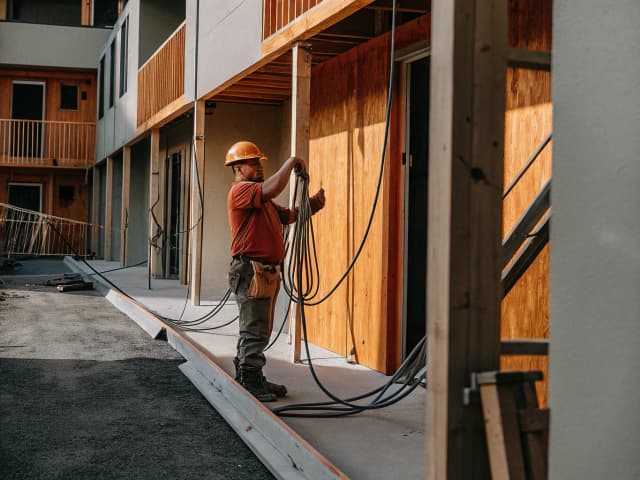
Electrical corporations: connections: affordable housing projects.
Requires utility companies to connect affordable housing projects to the electrical grid within 60 days of completion. Delays utility rate increases if companies fail to meet connection deadlines for affordable housing. Mandates streamlined review by the Public Utilities Commission for delayed housing connections. Expires on January 1, 2029 unless renewed by the legislature.
Electrical corporations: connections: affordable housing projects.

Requires utility companies to connect affordable housing projects to the electrical grid within 60 days of completion. Delays utility rate increases if companies fail to meet connection deadlines for affordable housing. Mandates streamlined review by the Public Utilities Commission for delayed housing connections. Expires on January 1, 2029 unless renewed by the legislature.

Renewable electrical generation facilities: electrified commuter railroads: regenerative braking: net billing.
Expands net energy metering to include electricity generated from train regenerative braking systems. Requires utilities to provide billing credits for electricity exported from electric train braking. Mandates utilities to install and maintain specialized metering systems at their own cost. Designates the Peninsula Corridor Joint Powers Board as an eligible customer-generator.
Renewable electrical generation facilities: electrified commuter railroads: regenerative braking: net billing.

Expands net energy metering to include electricity generated from train regenerative braking systems. Requires utilities to provide billing credits for electricity exported from electric train braking. Mandates utilities to install and maintain specialized metering systems at their own cost. Designates the Peninsula Corridor Joint Powers Board as an eligible customer-generator.
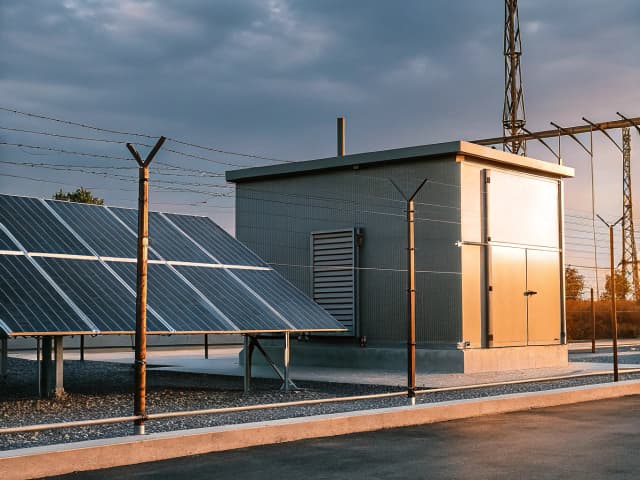
Electrical modernization zones.
Establishes six electrical modernization zones to prioritize infrastructure upgrades in underserved areas. Authorizes utilities to manage microgrids and collect fixed charges from customers in these zones. Requires state agencies to prioritize load growth projects in designated modernization zones. Mandates two zones be located in the High Desert area and Altadena, Los Angeles County.
Electrical modernization zones.

Establishes six electrical modernization zones to prioritize infrastructure upgrades in underserved areas. Authorizes utilities to manage microgrids and collect fixed charges from customers in these zones. Requires state agencies to prioritize load growth projects in designated modernization zones. Mandates two zones be located in the High Desert area and Altadena, Los Angeles County.
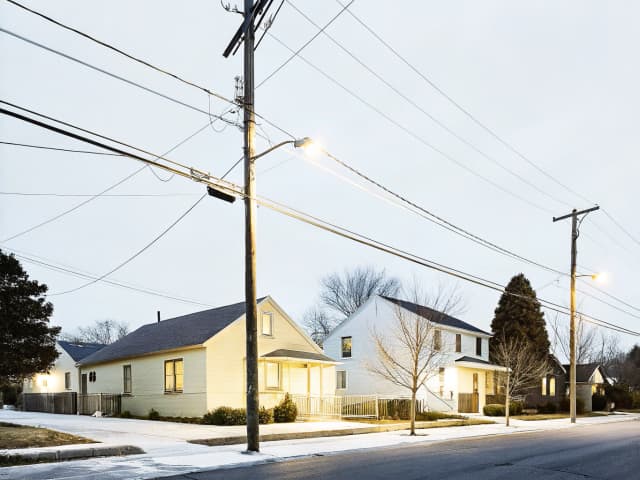
Public Utilities Commission: energy efficiency programs: report.
Requires the Public Utilities Commission to report annually instead of every two years on energy efficiency programs. Mandates reporting on ratepayer-funded utility programs that overlap with other state agency initiatives. Reports must identify similar programs across multiple state energy and transportation agencies.
Public Utilities Commission: energy efficiency programs: report.

Requires the Public Utilities Commission to report annually instead of every two years on energy efficiency programs. Mandates reporting on ratepayer-funded utility programs that overlap with other state agency initiatives. Reports must identify similar programs across multiple state energy and transportation agencies.

Communications: lifeline telephone service program.
Imposes strict lifeline privacy protections; access by government requires a court order. Prohibits requiring Social Security numbers to apply or participate in lifeline. Allows aggregated, de-identified data to support analysis and program management. Creates civil and criminal penalties for privacy violations.
Communications: lifeline telephone service program.

Imposes strict lifeline privacy protections; access by government requires a court order. Prohibits requiring Social Security numbers to apply or participate in lifeline. Allows aggregated, de-identified data to support analysis and program management. Creates civil and criminal penalties for privacy violations.

Electricity: customer generators: departing load charges.
Requires the state energy commission to design a new system for customers to generate electricity at their properties. Mandates increased transparency in how departing load charges are calculated and applied to customers. Establishes a stakeholder input process including utilities and consumer advocacy groups through 2031. Requires submission of recommendations to the Legislature by December 2027.
Electricity: customer generators: departing load charges.

Requires the state energy commission to design a new system for customers to generate electricity at their properties. Mandates increased transparency in how departing load charges are calculated and applied to customers. Establishes a stakeholder input process including utilities and consumer advocacy groups through 2031. Requires submission of recommendations to the Legislature by December 2027.

Electricity: Power Exchange.
Abolishes California's Power Exchange to restructure the state electricity market for increased competition. Establishes a five-member Electricity Oversight Board to supervise the Independent System Operator. Mandates a 20% rate reduction for residential and small commercial customers by April 2002. Requires utilities to recover transition costs through nonbypassable charges without increasing customer rates.
Electricity: Power Exchange.

Abolishes California's Power Exchange to restructure the state electricity market for increased competition. Establishes a five-member Electricity Oversight Board to supervise the Independent System Operator. Mandates a 20% rate reduction for residential and small commercial customers by April 2002. Requires utilities to recover transition costs through nonbypassable charges without increasing customer rates.

Public utilities: bills and notices: consolidation and transparency.
Requires the Public Utilities Commission to evaluate and improve utility bill transparency by June 2026. Mandates clear itemization of all charges on gas and electric bills including taxes and program fees. Authorizes the use of digital communication channels like email and mobile apps for utility billing.
Public utilities: bills and notices: consolidation and transparency.

Requires the Public Utilities Commission to evaluate and improve utility bill transparency by June 2026. Mandates clear itemization of all charges on gas and electric bills including taxes and program fees. Authorizes the use of digital communication channels like email and mobile apps for utility billing.

State Fire Marshal: lithium-ion battery facilities: guidance.
Requires SFM, with OES, to develop measures for utility-grade battery storage facilities. Establishes measures for prevention, response, recovery, and information sharing. Includes best practices for emergency personnel health and safety. Does not specify deadlines, funding, or enforcement provisions.
State Fire Marshal: lithium-ion battery facilities: guidance.

Requires SFM, with OES, to develop measures for utility-grade battery storage facilities. Establishes measures for prevention, response, recovery, and information sharing. Includes best practices for emergency personnel health and safety. Does not specify deadlines, funding, or enforcement provisions.

Energy.
Establishes the Industrial Decarbonization Program and expands climate financing. Creates an Industrial Facilities Thermal Energy Storage program within the energy storage framework. Requires post-2027 construction to use a project labor agreement. Imposes a 20% cap per project and requires community benefits funds and remediation plans.
Energy.

Establishes the Industrial Decarbonization Program and expands climate financing. Creates an Industrial Facilities Thermal Energy Storage program within the energy storage framework. Requires post-2027 construction to use a project labor agreement. Imposes a 20% cap per project and requires community benefits funds and remediation plans.